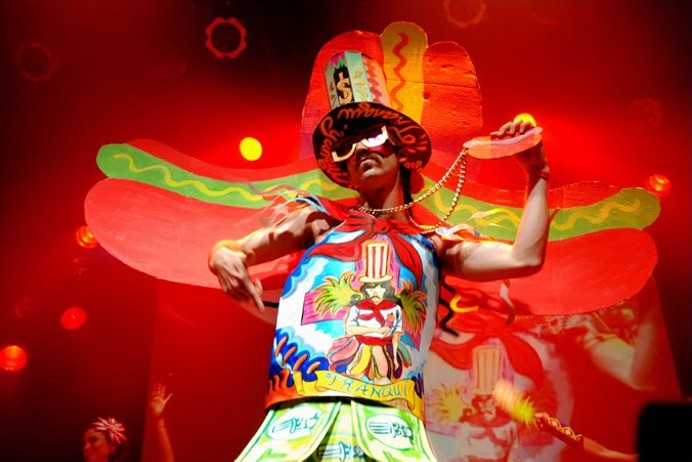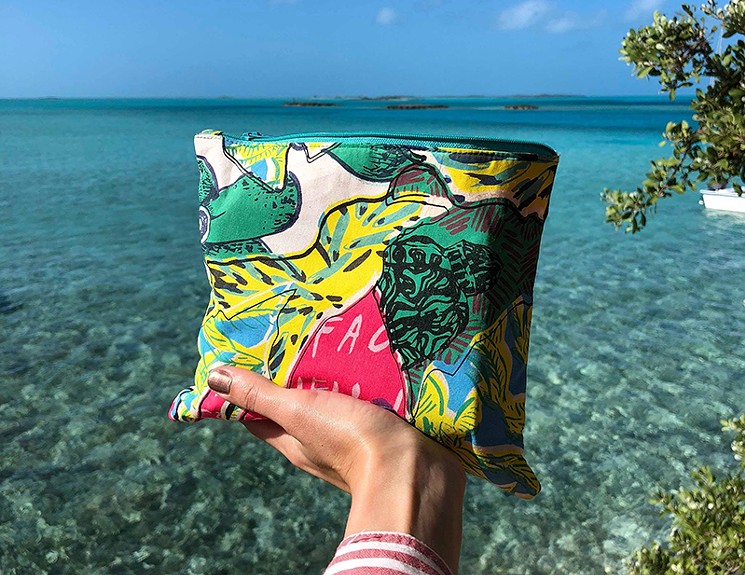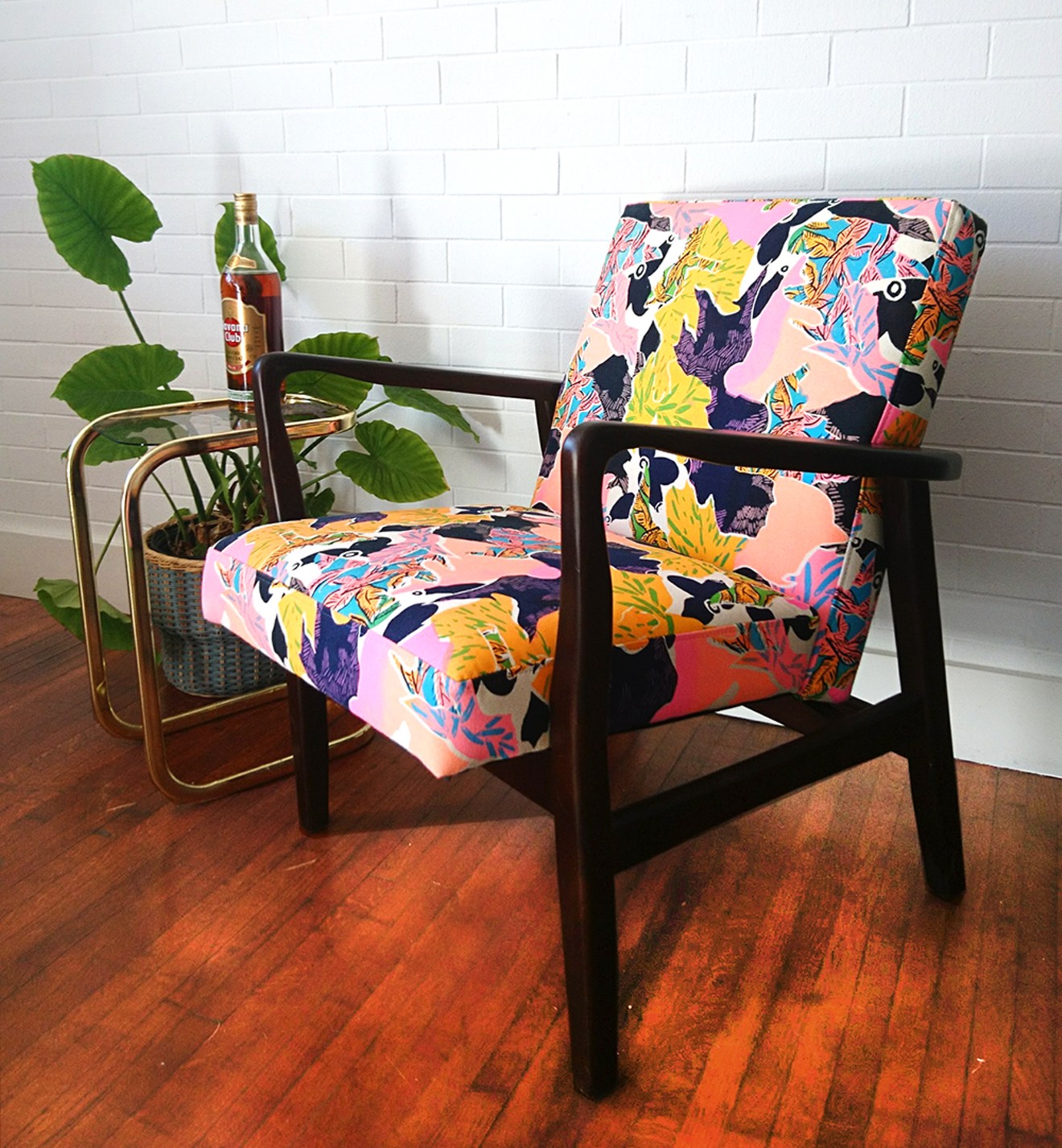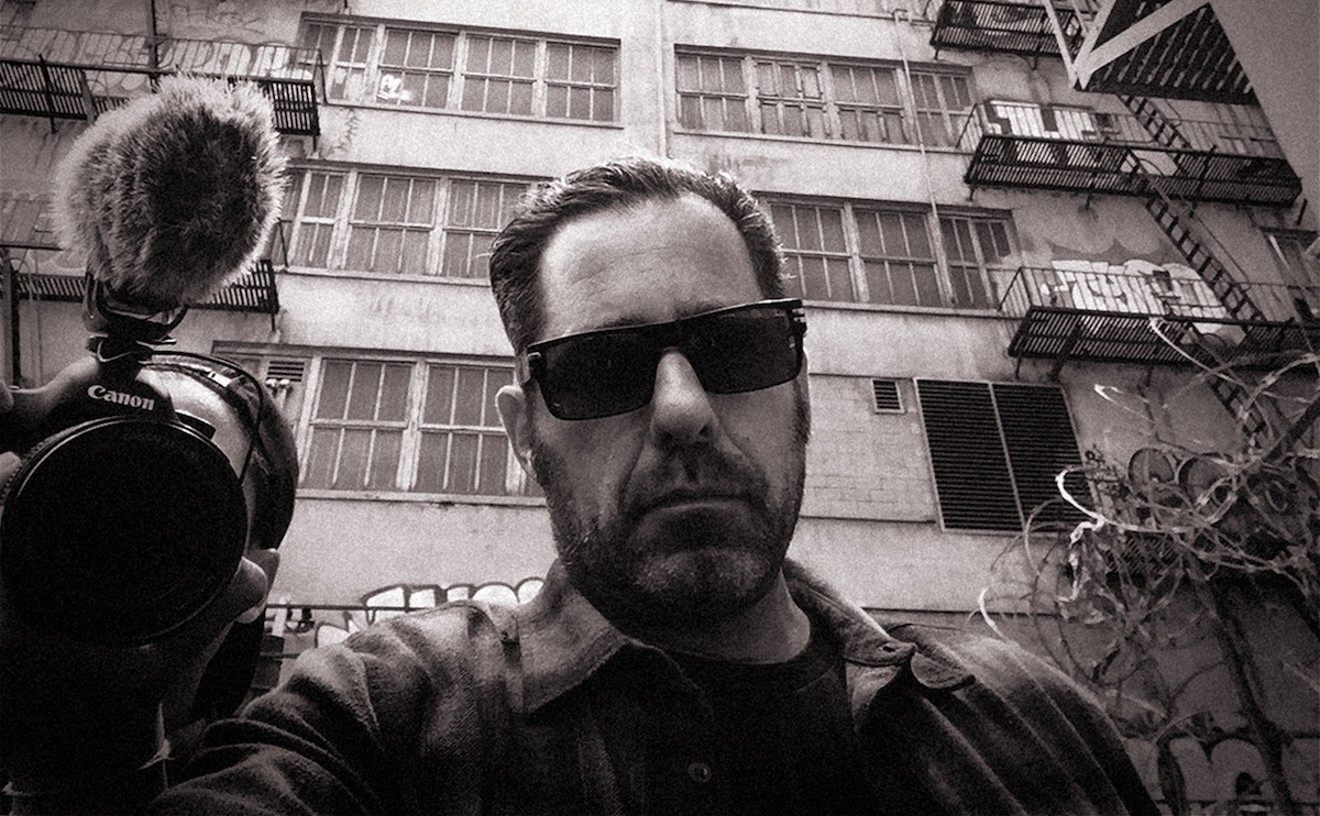The locally born artist has always been inspired by his lush surroundings. As a teenager growing up in Westchester, his paintings were a reflection of his surroundings, and they were always filled with brilliant color. "Bird Road tire shops, palm trees, lizards, cleavage — it was always about Miami," Mahshie says.
Even after he left his hometown, first to attend Rhode Island School of Design and later to Buenos Aires, Mahshie maintained his tropicalia aesthetic. As a performance artist known as
His alter ego preceded him, and the name stuck. After leaving Buenos Aires to attend grad school at the School of the Art Institute of Chicago, Mahshie decided his venerable Tranqui brand would have a home in Miami. Within the scene of his childhood inspiration, Tranqui Prints was born — and the impetus behind its sustainable, community-oriented growth is a direct response to his hometown pride.

A shot from one of Tranqui Yanqui's performative installations in Buenos Aires.
Photo by Eugenia Kais
His vision for the brand, both as a commercial venture and a community-oriented project, draws on Miami's complicated relationship with its own growth. Upon his return to the Magic City after nearly 15 years, Mahshie was awed by its evolution and disturbed to find that gentrification was rapidly consuming the city's most impoverished historic neighborhoods.
"How does one act when you feel like in some ways you're part of the problem? I didn't grow up in Little Haiti, and now I want to buy here and live here and start a business here," he says. "But then again, you look at developers and you think, My values are different. How do I participate in the community and respect people who have been there for a long time without forcing change
Mahshie set out to engage local business owners and artists to share resources and benefit financially from one another's endeavors. For
On the surface, these are small, practical steps. But in light of the recent events stirring up the local Haitian community, a micro-act such as this one could have a widespread impact if other business owners follow suit. Little Haiti is experiencing rampant construction and inflated real-estate prices. The death of local artist and gallerist Edward Daleus was recently decried in the Miami Herald as perhaps directly correlated to his ouster by a landlord. And Trump's disparagement of Haiti as a "shithole" country and his decree to deport thousands of Haitians has shaken the community.

Tranqui Prints offers its accessories line at pop-up shops across Miami. Follow @tranquiprints on Instagram to learn more.
Courtesy of Tranqui Prints
His goal is to create a funnel in which his success with
As a community-oriented venture specializing in elevating all artists and makers,
"This is a really accessible medium," he says. "This technique, which had a moment long ago, can be incorporated into anyone's practice. I really want to open up my space to other artists so they can open up a practice geared toward textiles or fashion."
Rather than spend upward of $700 per month for studio space,
Mahshie is scouting locations and is working with a local landowner who's considering converting the space into artists' studios. He plans to open
For more information about Tranqui Prints, visit facebook.com/tranquiprints.











